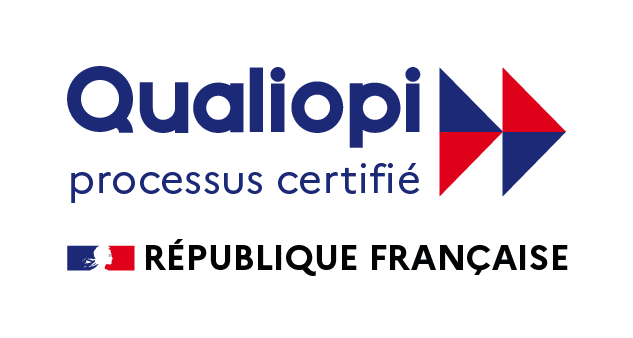In an ever-changing professional world, Generation Z presents itself with aspirations and characteristics that challenge traditional managerial practices. Born between 1997 and 2012, these young professionals seek deep meaning in their work, favor authenticity and value a balance between professional and personal life. With this in mind, neuroscience offers concrete ways of supporting them and adapting management to these new expectations.
1. GENERATION Z: IN SEARCH OF MEANING AND AUTHENTICITY
If there’s one truth, it’s this: faced with a turbulent world, this generation aspires to a job that makes sense, reflecting a quest for alignment between their personal values and the company’s missions.
The good news is that the cause is ultimately a positive one, as it reflects their commitment to work. According to Deloitte’s benchmark study¹ in 2023, Nearly half of Generation Z and a majority of millennials see their work as central to their identity. Out with the bullshit and the washing. Because to adhere to a discourse perceived as inauthentic would be to deny… one’s own identity!
In neuroscience, the quest for meaning and commitment at work that characterizes Generation Z can be illuminated by the theory of self-determination (Ryan and Deci), which emphasizes the importance of the fundamental psychological needs of autonomy, competence and relationships in fostering intrinsic motivation.
Generation Z, aspiring to meaningful work, seeks an environment that nurtures these needs, suggesting that organizations must offer opportunities for continuous learning, autonomous decision-making and authentic connection. The key: know how to identify the levers of intrinsic motivation for managers and for HR, provide solutions to these needs to manage Generation Z effectively.
2. THE IMPORTANCE OF PROFESSIONAL - AND PERSONAL!
A survey conducted by Adobe² reveals that 69% of young Generation Z professionals are positive about career growth opportunities within their company, but half might consider leaving their position if there were no clear path to promotion. This desire for professional development calls for particular attention to career structure and development prospects.
The need for mentoring and professional development is therefore a key element in retaining this young talent, highlighting the importance of investing in mentoring and ongoing training programs.
To optimize these initiatives, explore the free the Yuzu skills repository which identifies the essential soft skills for each profession, and ranks them according to their importance for over 11,000 professions. Using this type of repository helps to structure these programs by aligning development objectives with the specific skills valued and needed for advancement within the company.
Another important corollary: young people are more alert to the need for self-development. Coming from a more globalized culture, they are open to influences from across the Atlantic, much more open to coaching and personal development. For themselves, but also for their managers, refocusing on authenticity and alignment between oneself, one’s actions and one’s relationships with others is a MUST.
Gone are the days of fixed postures, replaced by open competency models that enable all these dimensions to be worked on holistically. Derived from neuroscience research and translated from the World Health Organization’s model of psychosocial competencies, the Omind model articulates 12 competencies for managing oneself in an aligned way, adapting to a fast-changing world and developing authentic relationships thanks to emotional intelligence.

3. AN INCLUSIVE, CARING WORK ENVIRONMENT
Generation Z attaches great importance to inclusion and well-being at work. The study reveals that 52% could leave their jobs if they experienced poor relations with managers or colleagues, underlining the importance of a respectful and welcoming work environment. Managerial practices therefore need to evolve towards more listening, empathy and support to meet these expectations.
What Gen Z expects of us is also good for us all, and for your business results. These skills are also the best predictors of collective performance, according to two major studies by MIT³ ⁴ and Google⁵ (2010 and 2015)..
What if you supported the performance of the whole company by helping your managers to better integrate emotional intelligence into their management practices?
4. MENTAL HEALTH AT THE HEART OF OUR CONCERNS
Mental health is a major concern for Generation Z, with half of those surveyed expressing a wish to receive mental health training from their employer.
Yet mental health figures for the under-30s are not good, and have even deteriorated significantly since the health crisis. In France, not only Santé Publique France barometers, but also insurers’ observatories on mental health (see Axa in particular) more or less show a doubling of stress, anxiety and associated disorders, as well as a doubling of sick leave for young working people as a result. It’s hardly surprising, then, that some of your young professionals are spreading their eco-anxiety – or any other source of anxiety – to all their office colleagues…
Here again, the reason lies in neuroscience. In a previous infographic, Omind Neurotechnologies analyzed the characteristics of Gen Z in its data, comparing them to executives or other employees from previous generations⁶. Your employees under 35 are three times more likely to have low emotional maturity! In other words, they find it hard to process their emotions, and tend to conflate a failure or difficulty with their own self-worth. Unfortunately, all this provides fertile ground for the development of mental health problems.
The solution? Provide them with neuroscience-based experiences, enabling them to experiment with strategies such as mindfulness and stress management. These strategies can be integrated into training programs to help them develop better emotional regulation, essential to their success and fulfillment⁷ . Omind Neurotechnologies’ onboarding programs for young employees are just what you need!

5. COMMUNICATION AND INTERPERSONAL SKILLS
Despite their comfort with technology, 70% of Gen Zers value face-to-face socialization at work, as Deloitte points out. This highlights the need to develop strong interpersonal and communication skills, essential for teamwork and leadership.
In a world where communication is central, they expect more from their managers and leaders. Why not take this opportunity to train everyone in storytelling? Using emotional intelligence skills, of course, to create effective pitches and connect with your audience.
6. CONTRADICTIONS TOO: FLEXIBILITY, HYBRIDIZATION OF WORK AND IA
Yes, some of Generation Z’s expectations and characteristics are also contradictory!
a. Open to novelty, to artificial intelligence, to technology? Not quite so simple.
A study by Adobe has revealed that 48% of Generation Z feel ready to embrace the use ofgenerative AI in their work, although only 35% report that their organization has guidelines in place for its use. This generation anticipates the permanence of AI but only 23% express enthusiasm about it, underlining a measured approach to the technology despite their reputation as “digital natives”.
And here again, data from Omind Neurotechnologies shows that people under 35 are 2 x more likely to have low curiosity and creativity than their elders. Why is this? Neuroscience gives us the key: creativity is actually linked to experience.
So break with these preconceived ideas and support your young employees just as much as their elders in the adoption of technology and innovation!
b. Another apparent contradiction: hybrid work or socialization?
Flexibility in where and when they work is paramount for 81% of Generation Z employees, with the majority preferring a hybrid working model.
And yet, given their need for sociability, this is not a matter of course. But there is one explanation that stands out from the crowd, and that again comes from neuroscience: young people have a strong need for autonomy, as we have seen with regard to the determinants of motivation and meaning at work.

To manage Generation Z effectively, organizations need to rethink their approach to work to offer greater flexibility and meet the expectations of these young professionals by giving them a choice, while maintaining a clear framework and a minimum of constraints, thus avoiding the all-at-a-distance approach. Offering learning experiences in the workplace with technology (e.g. virtual reality) is an interesting way to retain, stimulate and socialize them with their peers and colleagues.
CONCLUSION
Managing Generation Z requires a profound revision of managerial practices, with a focus on meaning, personal and professional development, inclusion, mental health, flexibility and interpersonal skills. Neuroscience offers keys to understanding and responding to these needs, enabling organizations to effectively attract, retain and motivate these young talents. Omind, with its expertise in applied neuroscience, is positioned as a privileged partner to support companies in this transformation, guaranteeing the well-being and effectiveness of teams, from Generation Z and beyond.
Would you like to improve the management of your young employees? Let's meet to discuss it!
¹ Deloitte’s 2023 Gen Z and Millennial Survey
³ Empathy as a predictor of performance : Woolley, A. W., Chabris, C. F., Pentland, A., Hashmi, N., & Malone, T. W. (2010). Evidence for a collective intelligence factor in the performance of human groups. science, 330(6004), 686-688.
⁴ The importance of strong ties : De Montjoye, Y. A., Stopczynski, A., Shmueli, E., Pentland, A., & Lehmann, S. (2014). The strength of the strongest ties in collaborative problem solving. Scientific reports, 4(1), 5277.
⁵ Psychological safety as a decisive factor: Duhigg, C. (2016). What Google learned from its quest to build the perfect team. The New York Times Magazine, 26(2016), 2016.
⁶ Omind infographic. https://www.omind.me/booster-les-jeunes-collaborateurs/
⁷ Davidson, R.J., & Begley, S. (2012). “The Emotional Life of Your Brain.”

